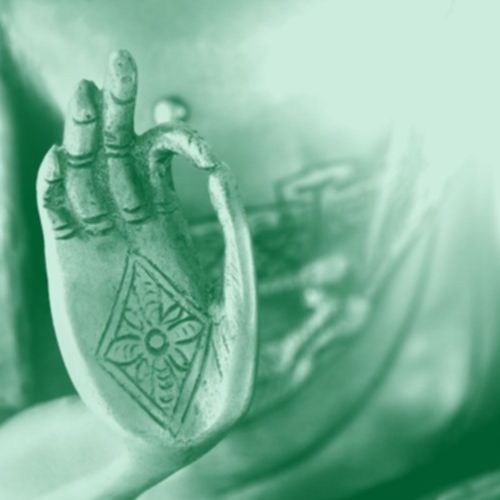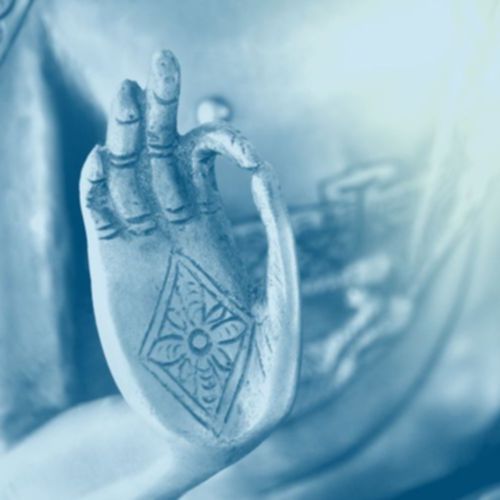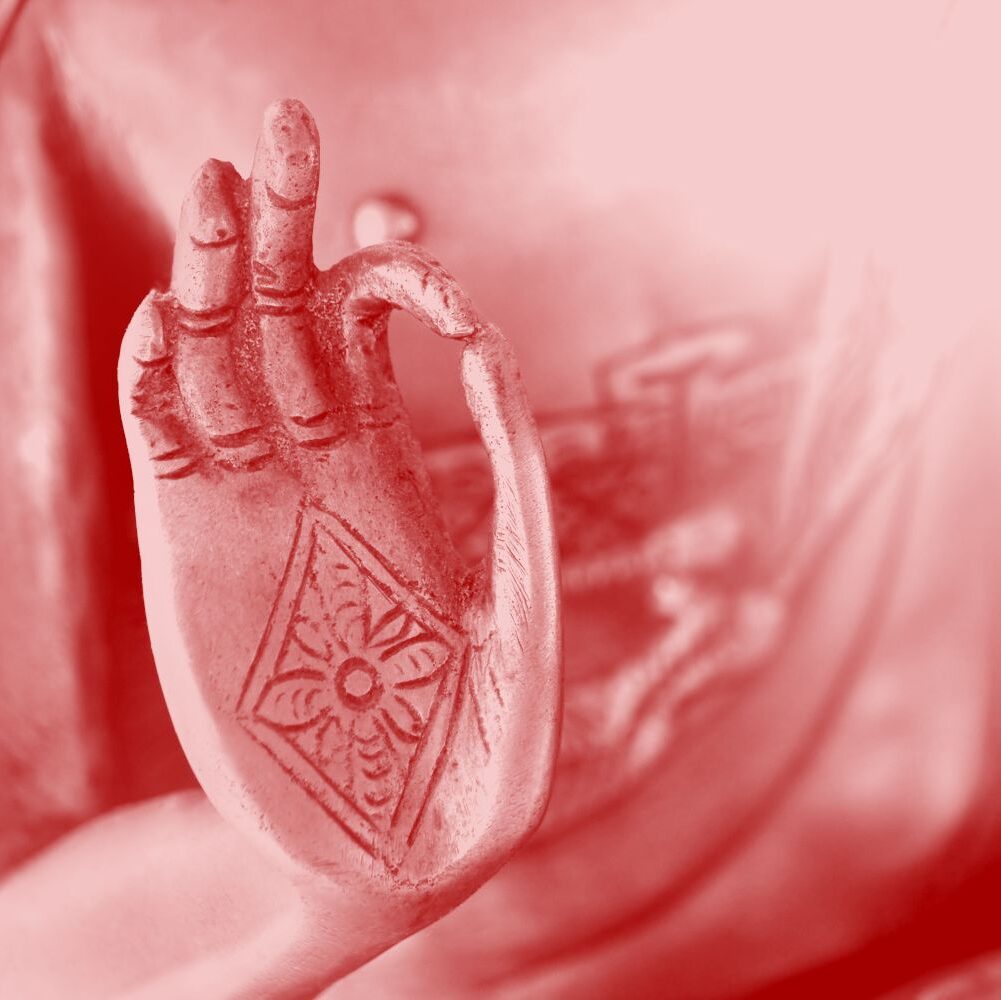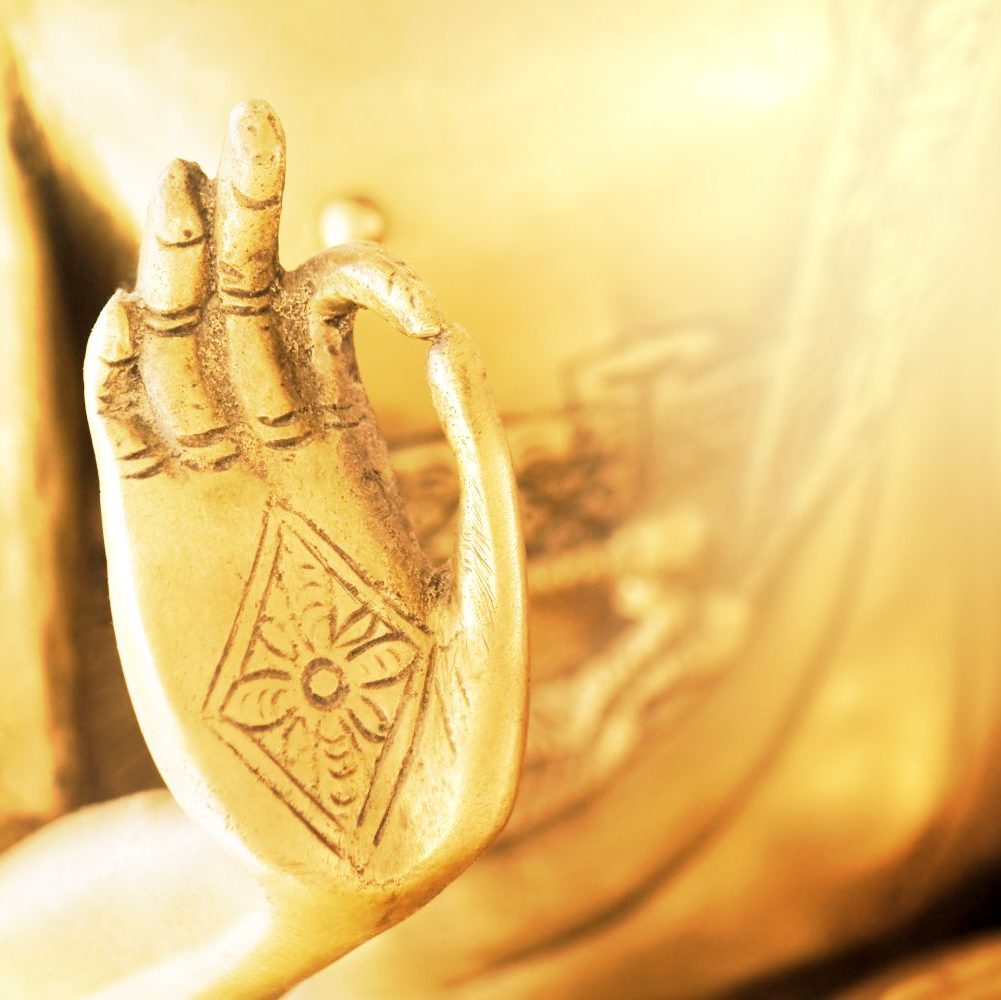- Jennifer Prugh
- Sunday, June 22, 2025
- 1:30 - 5:00pm (PST)
- Online Only
Evidence-based research indicates that meditation lowers blood pressure, relieves depression, supports the immune system, increases productivity, promotes innovative thinking, among a host of other benefits.
No matter who we are or what our circumstances, meditation and embodied-awareness practices are essential tools in cultivating presence of mind, body, and heart, such that we can live more joyful, mindful lives, and be of more meaningful benefit in the world.
Those who have practiced contemporary yoga often reap the physical and emotional benefits that come from yoga-asana without a deep experience of four of Patanjali’s eight limbs of yoga (turning within, concentration, meditation, and absorption). This course bridges that gap. Those coming to this course with a background in seated meditation will learn to integrate a variety of embodied-awareness practices into mindful movement practices.
This course is also for all those in education, healthcare, or business who are looking to integrate, and potentially teach meditation.
Each of the four intensives will address the origins, evolution, psychology, and practices of meditation, mindfulness, and embodied awareness within that specific intensive; science of flow, EEG | MRI studies, short and long-term trait changes, neurofeedback, mind and life research, breathwork, foundational ethical practices, and awareness practices from a variety of contemplative traditions. We will include in our study neural networks, frontal and cerebral cortex, and the gut-brain relationship. We will leave each evening session with daily practices to explore until the following week’s session.
The JOY Meditation and Awareness Practice Course will enable you to:
Meditation and embodied-awareness practices are essential tools in cultivating presence of mind and body such that we can live more joyful, mindful lives and be of more meaningful benefit in the world. Those who have practiced contemporary yoga often reap the physical and emotional benefits that come from yoga-asana without a deep experience of four of Patanjali’s eight limbs of yoga (turning within, concentration, meditation, and absorption). This course bridges that gap. Those coming to this course with a background in seated meditation will learn to integrate a variety of embodied-awareness practices into mindful movement practices. This course is open to anyone looking to integrate a meditation practice into their lives as well as those who want to teach meditation.
We will address the origins, evolution, psychology, and practices of 27 distinct types of meditation and embodied awareness practices, including the science of flow, EEG | MRI studies, short and long-term trait changes, neurofeedback, mind and life research, and breathworkWe will include in our study neural networks, frontal and cerebral cortex, and the gut-brain relationship. We will be equipped with daily practices to explore.
Upon registration, you will receive access to the Moving Into Meditation online course. To receive a certificate of completion, you must attend the beginning live zoom course and the final afternoon immersion live on zoom. The course is supported through online material that provides a dynamic platform to engage the material, connect with other students and the teachers. If you are taking this course for CEUs or personal enrichment, the live component is not required.
Meditation and embodied-awareness practices are essential tools in cultivating presence of mind and body such that we can live more joyful, mindful lives and be of more meaningful benefit in the world. Those who have practiced contemporary yoga often reap the physical and emotional benefits that come from yoga-asana without a deep experience of four of Patanjali’s eight limbs of yoga (turning within, concentration, meditation, and absorption). This course bridges that gap. Those coming to this course with a background in seated meditation will learn to integrate a variety of embodied-awareness practices into mindful movement practices. This course is open to anyone looking to integrate a meditation practice into their lives as well as those who want to teach meditation.
We will address the origins, evolution, psychology, and practices of 27 distinct types of meditation and embodied awareness practices, including the science of flow, EEG | MRI studies, short and long-term trait changes, neurofeedback, mind and life research, and breathworkWe will include in our study neural networks, frontal and cerebral cortex, and the gut-brain relationship. We will be equipped with daily practices to explore.
Upon registration, you will receive access to the Moving Into Meditation online course. To receive a certificate of completion, you must attend the beginning live zoom course and the final afternoon immersion live on zoom. The course is supported through online material that provides a dynamic platform to engage the material, connect with other students and the teachers. If you are taking this course for CEUs or personal enrichment, the live component is not required.
This meditation intensive provides the opportunity to fully explore the potential of utilizing the heart as a means of cultivating awareness. The brahmaviharas or Four Immeasurables are found in both Buddhist and classical yogic teachings. Scientific research indicates that compassion practices expand happiness, support personal relationships, and improve health. We will study and practice the cultivation of four states: loving-kindness, compassion, sympathetic joy, and equanimity. Once a consistent awareness practice is cultivated, we can begin to viscerally explore utilizing sustained attention to cultivate a variety of supportive, internal states. We will leave the evening session with time-tested tools to develop greater capacities as a human being.
The ground we will cover includes the history and psychology of meditation, mindfulness, science of flow, EEG | MRI studies, long-term trait changes, neurofeedback, science of breath, heart-based awareness practices from a wide variety of contemplative traditions. Students will leave with a deeper connection to heart-mind practices and new skills to relate to others, while teachers will come away with an array of practices to support their students.
To participate, please have an intention to have a consistent mind-body practice (yoga asana, qigong, or tai chi) and meditation practice. You do not need to have taken a yoga teacher training to participate in this intensive.
Meditation and embodied-awareness practices are essential tools in cultivating presence of mind and body such that we can live more joyful, mindful lives and be of more meaningful benefit in the world. Those who have practiced contemporary yoga often reap the physical and emotional benefits that come from yoga-asana without a deep experience of four of Patanjali’s eight limbs of yoga (turning within, concentration, meditation, and absorption). This course bridges that gap. Those coming to this course with a background in seated meditation will learn to integrate a variety of embodied-awareness practices into mindful movement practices. This course is open to anyone looking to integrate a meditation practice into their lives as well as those who want to teach meditation.
This afternoon retreat with Jennifer held on Zoom is timed at the beginning of spring as we look ahead at where and how we want to grow.
Through a series of meditations, we will be developing our skills of inner listening. We’ll be studying the ways in which people from the yoga and other mind/body traditions have interpreted the callings of one’s inner life. We’ll focus on the presence and power of emotion and sensation and how ultimately to be more creative with life inside and around us.
This afternoon retreat with Jennifer held on Zoom is timed at the beginning of summer to, from the inside out, fully reap the benefits inherent in the summer months and to learn to “surf life” with greater clarity and grace.
We will explore a series of short meditations from a wide variety of time-tested traditions that we can use to bring greater ease and creativity to everything we do and to fully explore what is available to us.
Coming Soon.
This afternoon retreat is timed at the beginning of the year when so many of us are intending to spend some time internally, checking in with ourselves and establishing new habits.
We’ll be cultivating internal states that support us every day while also looking at how to identify and effectively act upon what is calling us from the inside out. We’ll also be writing as a practice of self-reflection.
Held only on Zoom, we will refer to the Yoga Sutra’s Brahma Viharas or Four Immeasurables to see what those who came long before us had to offer in regards to how we navigate our inner lives.
This is an opportunity for yoga teachers to deepen their knowledge of yoga, and expand their teaching practice. Over the course of two months, you will be guided in an in-depth study of guiding asana, breath, subtle body practices, dharma and meditation, refining your teaching skills, and deepening your yogic study. Included in this program is a deep look into how we share the work we do professionally. You will follow your own path of interest and research which will be determined early in the course. You will be supported by Jennifer and the group to find and express your unique voice as a teacher.


Registration opens September 18th, 2025.

Moving into Meditation

Art of Presence

Heart-Mind Practices

Mapping the Inner Life
This website uses cookies to ensure you get the best experience on our website. Private Policy.